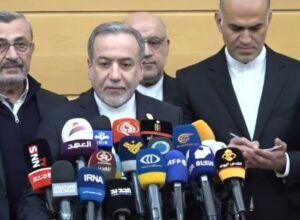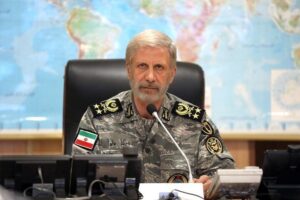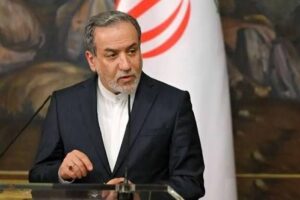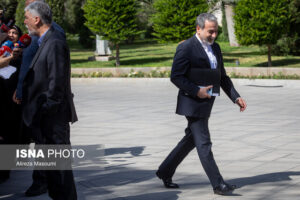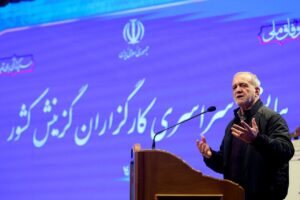According to the Persian edition of IRNA, Seyed Abbas Araghchi, Iran’s Foreign Minister, appeared on the “Special News Talk” program on Thursday evening, 26 June 2025, to discuss recent developments in foreign policy following the aggression by the Zionist regime and the United States against Iran.
The Foreign Minister began the interview by stating: “Before coming here, I visited that famous glass building and saw the damage caused. Honestly, I felt pride and honor for the IRIB (Islamic Republic of Iran Broadcasting) staff. Despite the attack on the main headquarters of the organization and the damages that seemed to have incapacitated it, not a single minute of interruption occurred in any of the IRIB’s network programs.”
He continued: “This, in itself, is a source of pride, and we should honor the IRIB staff. Some of them were notably recognized and deserved this acknowledgment, but many others worked behind the scenes. In my view, what happened at IRIB is a microcosm of the events of these 12 days. IRIB resisted all attacks and did not allow its programs to be halted.”
Referring to the broader national context, Araghchi added: “Various attacks targeted different parts of the country, assassinations took place, we lost important individuals, and critical infrastructure was hit. Ultimately, an extremely harsh warlike atmosphere was created, but the country neither collapsed nor surrendered. As the Supreme Leader stated today, Iran is unfamiliar with the concept of surrender. This word has no place in our political and social lexicon, and this truth was proven over these 12 days.”
The Foreign Minister continued: “A nuclear-armed superpower and a nuclear-armed regime, with the support of two other nuclear-armed countries and many European nations, mobilized to break and subdue the Islamic Republic of Iran and its people, aiming to end a nearly 50-year struggle against U.S. hegemony, but they failed. This resilience truly deserves congratulations. This period will remain a milestone in Iran’s history as a testament to the unified resistance of the Iranian people. During this time, differences in ideology, politics, and ethnicity were irrelevant, and everyone united in defending the country and resisting the aggression, proving Iran and Iranians’ invincibility and demonstrating our resistance to the world.”
Araghchi further noted: “We gained a very important experience. For years, we have resisted attempts to deprive Iran of its rights, enduring various pressures, sanctions, and maximum pressure campaigns in both the first and second phases. They employed every threat and tactic, trying to entice us in negotiations, and when that failed, they resorted to war. They used every tool to deprive the Iranian people of their rights.”
The Foreign Minister continued: “Following Donald Trump’s victory in the presidential election, a new phase of maximum pressure policy against Iran began. As you may recall, he signed a presidential memorandum issuing directives to intensify pressures on Iran and made threats.”
He added: “Trump then, despite these threats, requested negotiations and wrote a letter in this regard, which I have previously discussed. The letter was a mix of threats and diplomatic proposals. At that juncture, we faced a difficult dilemma: if we succumbed to these pressures and entered negotiations, it wouldn’t have been genuine; but if we rejected negotiations, we would have been accused in global public opinion of opposing diplomacy and peaceful solutions.”
Referring to the policy adopted at the time, Araghchi said: “The policy was precise, calculated, and intelligent. We announced that we are not opposed to diplomacy or negotiations, but we would not play on the field defined by the other side. Instead of direct negotiations, we proposed indirect negotiations and shifted the conditions in our favor. With this approach, we entered negotiations on our own terms. The success of this policy was evident in the fact that it took the U.S. government about two weeks to accept our proposal for indirect negotiations. In other words, the dilemma they intended to impose on us, we imposed on them, forcing them to negotiate within our proposed framework.”

